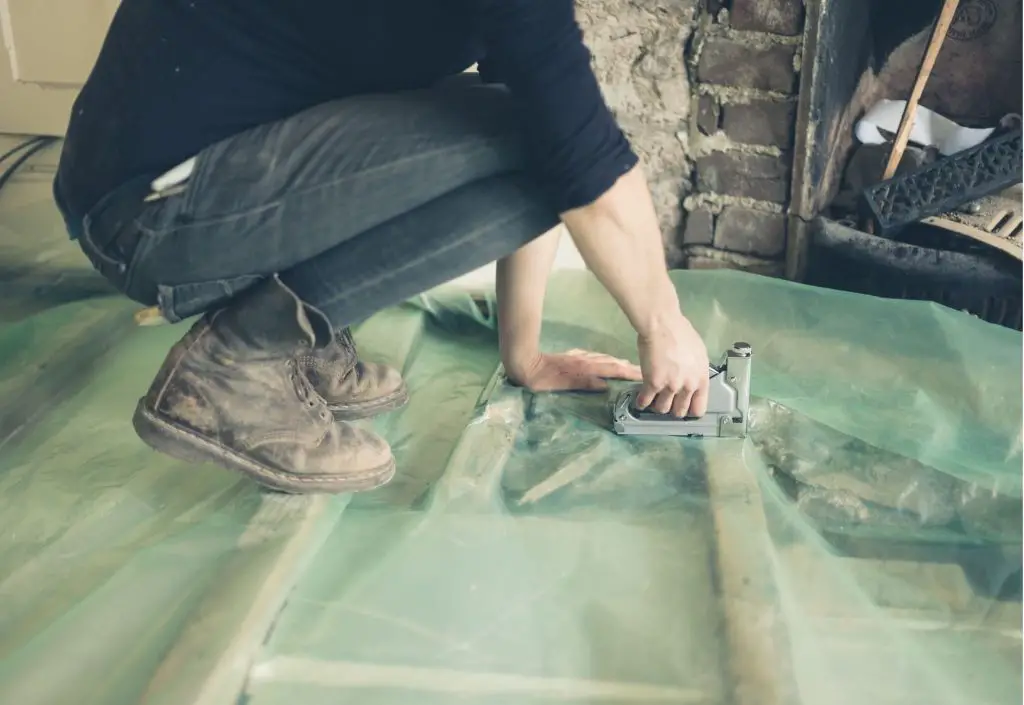What is a Michigan basement? A Michigan basement is basically an oversized crawl space. An area under the house that has been dug out to make room for storage. And most known for the location they stem from. You guessed it, Michigan.
Though they are not typically made large enough to be able to walk around in some people do put their washer and dryer there. Other major machinery and appliances that can be located in a Michigan basement for easier access include the water heater, the HVAC, and the electrical breaker box.
Access to plumbing underneath the house is also a reason people may dig out a larger crawl space beneath the house.
Michigan basements are rarely finished beyond cementing for breaking the walls so that the walls do not cave in. The floor it’s typically just left as dirt.
The climate inside of a Michigan basement is is damp and cool. For this reason the dugout crawl space is often used as a wine cellar.
A wine cellar needs to stay around the 45°, to 60° range and maintain a relative humidity of about 60%. That describes the climate inside of a Michigan basement pretty well.
As you can imagine, being that the floor in the Michigan basement is usually just dirt, it is easy for this type of basement to flood. Especially in heavy rain.
Sump pumps with radon mitigation and dehumidifiers are generally kept on hand to keep the area dryer during the rainy season.
 Other drawbacks too keeping a Michigan basement is the exposure to Radon.
Other drawbacks too keeping a Michigan basement is the exposure to Radon.
The air pressure in a home can perform like a vacuum pulling radon out of the soil beneath the house.
Digging out the dirt beneath the house for a Michigan basement adds to the danger of radon exposure.
Radon is an odorless gas that comes from soil and is the second leading cause responsible for lung cancer when exposed for long periods of time. A Radon test is the only way to know whether or not you have a problem.
The environmental protection agency recommends covering the floor of a Michigan basement with plastic and venting the area outside underneath the plastic to avoid radon exposure.
The plastic sheeting could be as simple as your standard 6 mm polyethylene. But if you go with a contractor you will probably have to upgrade to a fire rated membrane. The plastic won’t stop the radon but it will cause the radon to travel through the path of least resistance. As long as there’s some type of exhaust fan at the edge, the result is good.
Insulating a Michigan basement is also a must to keep right on from leaking into the house. Spray foam is the easiest way to get around joist and makeshift walls.
If you find you have high levels of radon, then you may be looking at installing a radon removal system which could include pouring a cement slab over a radon guard insulation and a vapor barrier to keep the radon from leaking up and also providing a way to capture it.
 Though all houses have the potential of radon coming Getting in, a home with a Michigan basement has a higher potential for Radon.
Though all houses have the potential of radon coming Getting in, a home with a Michigan basement has a higher potential for Radon.
Homes with Michigan basement should test for Radon often and employ a radon mitigation system for her a radon abatement service to ensure that radon levels in your home are below the accepted safety standard of 4.0pCi/L

 Though all houses have the potential of radon coming Getting in, a home with a Michigan basement has a higher potential for Radon.
Though all houses have the potential of radon coming Getting in, a home with a Michigan basement has a higher potential for Radon.